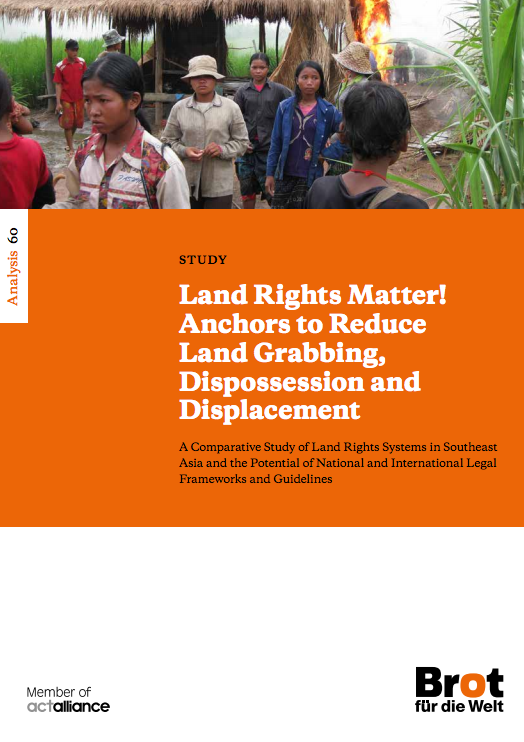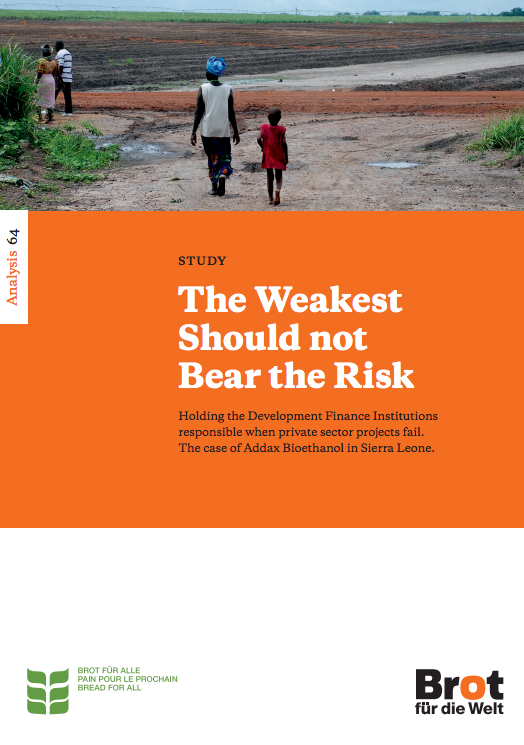Location
Bread for the World – Protestant Development Service is the globally active development and relief agency of the Protestant Churches in Germany. In more than 90 countries all across the globe we empower the poor and marginalised to improve their living conditions. Key issues of our work are food security, the promotion of health and education, the access to water, the strengthening of democracy, respecting human rights, keeping peace and the integrity of creation.
Our guiding principles
Our work is rooted in the faith that bears witness to the world as God’s creation, in the love that encounters the Lord precisely in our disenfranchised and poorest neighbour, and in the hope that acts in accordance with God’s will in expectation of a just world. Bread for the World – Protestant Development Service considers itself part of the global Christian Community. We seek the cooperation with churches and church agencies throughout the world and assume our responsibility in ecumenical networks.
Our Work
The work of Bread for the World – Protestant Development Service primarily focuses on the support of projects in the countries of the Global South. An essential feature of our projects is the close and continuous cooperation with local, often church-related partner organisations. Upon request, Bread for the World provides them with specialists and volunteers. Through lobbying, public relations and education in Germany and Europe we seek to influence political decisions in favor of the poor and to raise awareness for the necessity of a sustainable way of life.
Members:
Resources
Displaying 1 - 5 of 8Good Practices in Land Rights Work.
In order to further benefit from the great wealth of
Elusive Investors keep buying and selling – People remain and suffer
Chapter in a book;“Rethinking land reform in Africa;opportunities and challenges” by the African Natural Resources Centre;edited by Cosmas Milton Obote Ochieng for the African Development Bank. A think piece reflecting on changing commercial pressures on land in low and middle-income countries; the role of law in shaping the ways those pressures manifest themselves; the limits of business standards in driving systemic change; and the case for comprehensive law reform to secure rural land rights.
Land Rights Matter! Anchors to Reduce Land Grabbing, Dispossession and Displacement
“It is paradoxical but hardly surprising that the right to food has been endorsed more often and with greater unanimity and urgency than most other human rights, while at the same time being violated more comprehensively and systematically than probably any other.”
Richard Cohen, in Causes of Hunger, 1994
The Weakest Should not Bear the Risk
Following the financial and food crisis in 2008 the phenomenon of land grabbing through large-scale investments in land leading to forcible displacement of rural population, increasing their food insecurity and disregarding Human Rights became a hot topic on the global agenda. At the same time it became clear, that more investments were needed into the agricultural sector to increase food security and secure agricultural productivity.
Land Rights Matter! Anchors to Reduce Land Grabbing, Dispossession and Displacemen
A Comparative Study of Land Rights Systems in Southeast
Asia and the Potential of National and International Legal
Frameworks and Guidelines....."Land rights systems in Southeast Asia are in constant
flux; they respond to various socioeconomic and political pressures and to changes in statutory and customary
law. Over the last decade, Southeast Asia has become
one of the hotspots of the global land grab phenomenon,
accounting for about 30 percent of transnational land
grabs globally. Land grabs by domestic urban elites,





